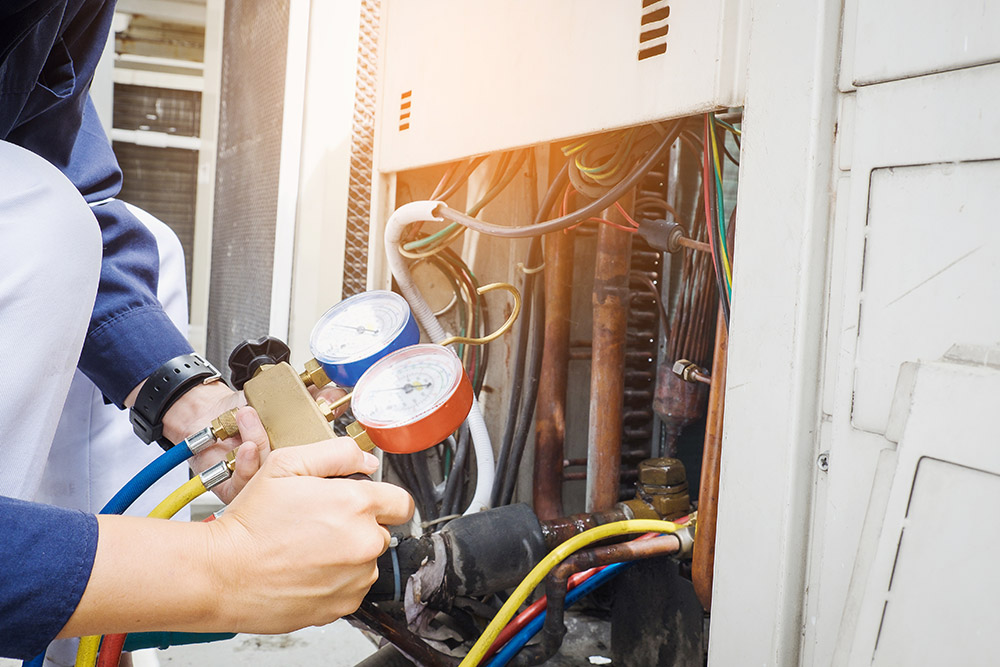
If your heating system fails, you'll see. Sometimes it's possible to repair your furnace, however ultimately you might require to acquire a new system. When setting up a furnace becomes your finest alternative, think of these essential cost factors to consider prior to buying.
Find the right furnace
The very first thing you'll require to consider is the kind of heater to set up. Since the majority of furnaces last in between 15 and 20 years, chances are the choices now available didn't exist when your original system was bought.
The most common property heater is powered by gas. The cost of a standard efficiency gas furnace ranges from $2,250 to $3,800. You may incur greater costs, depending upon the complexity of the install or if you select a greater effectiveness system.
Oil furnaces preceded gas and are still readily available in some states, however these heaters tend to be less effective. They cost $2,200 to $2,500 to install, perhaps more if existing duct requires to be adapted. According to CostHelper.com, factors such as hard-to-reach ductwork, an intricate floorplan or a bigger, more energy effective unit can push the price as high as $10,000.
You can likewise select to set up electric heat, which originates from little signs up situated around the border of each space. Although the expense of setup averages in between $1,800 and $2,700, this kind of heat source isn't an excellent idea for heating large areas and comes with high energy expenses.
One more recent alternative acquiring popularity is a heatpump, which pulls in heat from the air or ground using refrigerant coils. These heaters can be used as a/c systems in summer, but many https://www.washingtonpost.com/newssearch/?query=hvac can't operate in exceptionally cold climates, restricting their efficacy.
Heating system performance
Gas heating systems include a host of choices which can impact their price.
The very first is heat output, measured in British Thermal Units (BTUs); an "typical" home is well served by a 60,000 BTU furnace. Systems with greater BTU score aren't necessarily better for smaller homes, since they'll cost more and hit ideal temperatures too quickly, then turned off, resulting in an inconsistent convenience level.
Heating system performance is the next factor to consider. Older-model heaters were frequently ranked 80 percent effective or less, which implies 20 percent of the heat produced was lost to squander. Numerous new models are rated 90 percent or better, with some in the 94 to 95 percent range. This small dive in performance equates to a reduction in energy expenses
It's also important to determine how effectively a gas heater can heat your home, in large part determined by its "staging." Older heaters were one phase, indicating they constantly performed at complete power. Numerous more recent heating systems are two phase, efficient in performing at free furnace assessment 65 percent when initially launching to save fuel, and after that increase to 95 percent as required. More pricey 3 phase models likewise exist, which can run anywhere from 33 to 90 percent power in 1 percent increments.
Furnace labor expenses.
Installing a furnace likewise comes with labor costs. The price of labor isn't fixed, but numerous business charge around $75 per hour for a certified installer and $50 for an assistant. For an 8-hour set up, this comes to $1,000 for labor alone. Set up costs may run greater if extensive duct work repair or modification is necessary, or if a brand-new furnace is considerably smaller sized or larger than an existing unit.
Two service warranties govern heating system installs and function. The first is the manufacturer's guarantee, which features the heating system and secures versus problems in the furnace itself, such as unusable fans or pilot lights that won't stay lit. A professional's warranty covers the labor included to make repair work if the heating system doesn't work effectively and is typically great for a period of 5 to ten years. Some specialists charge more for extended warranties.
Make sure to get any guarantee in writing; likewise make certain that it specifies precisely what gets covered, for for how long and what the professional will do to fix the issue. Although the costs of setting up a heating system differ substantially, you can avoid rate mistakes by doing your own research study.